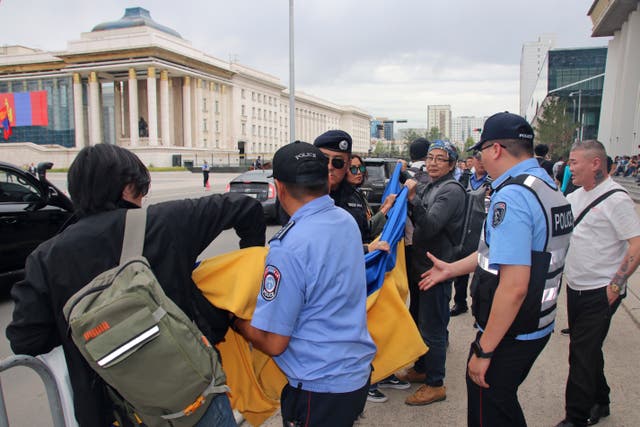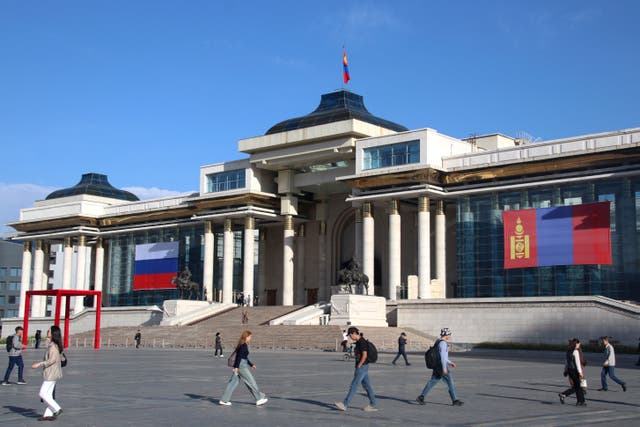Vladimir Putin visits Mongolia in defiance of international arrest warrant
The trip is his first to a member country of the International Criminal Court since it issued a warrant for his arrest about 18 months ago.

Russian President Vladimir Putin was visiting Mongolia on Tuesday, with no sign that the host country would bow to calls to arrest him on an international warrant for alleged war crimes stemming from the invasion of Ukraine.
The trip is his first to a member country of the International Criminal Court since it issued a warrant for his arrest about 18 months ago.
A spokesman for Mr Putin said last week that the Kremlin was not worried.
His visit puts Mongolia in a tough spot. Members of the international court are bound to detain suspects if an arrest warrant has been issued, but Mongolia is a landlocked country highly dependent on Russia for fuel and some of its electricity.
The court does not have a mechanism to enforce its warrants.
The Russian leader was welcomed in a ceremony in the main square of the capital city, Ulaanbaatar, by an honour guard dressed in vivid red and blue uniforms styled on those of the personal guard of 13th century ruler Genghis Khan, the founder of the Mongol empire.

A small group of protesters who tried to unfurl a Ukrainian flag before the welcome ceremony were taken away by police.
Sitting down for talks with Mr Khurelsukh, Mr Putin said that relations between their two countries “are developing in all areas”.
He invited the Mongolian president to attend a summit of the Brics nations, a group that includes Russia and China among others, in the Russian city of Kazan in late October.
Mr Khurelsukh accepted, according to Russian state news agency RIA Novosti.
The International Criminal Court has accused Mr Putin of being responsible for the abductions of children from Ukraine, where the fighting has raged for two and a half years.
On Monday, the European Union expressed concern that the International Criminal Court warrant might not be executed and said it has shared its concern with Mongolian authorities.
“Mongolia, like all other countries, has the right to develop its international ties according to its own interests,” European Commission spokeswoman Nabila Massrali said.
But she added, “Mongolia is a state party to the Rome Statute of the ICC since 2002, with the legal obligations that it entails.”

The signatories include Vladimir Kara-Murza, who was freed from a Russian prison in August in the biggest East-West prisoner swap since the Cold War.
Mr Putin, on his first visit to Mongolia in five years, will join a ceremony to mark the 85th anniversary of a Soviet and Mongolian battle victory over a Japanese army that had taken control of Manchuria in north-eastern China.
Thousands of soldiers died in months of fighting in 1939 over the border’s location between Manchuria and Mongolia.
Mr Putin has made a series of overseas trips in recent months to try to counter the international isolation he faces over the invasion of Ukraine.
He visited China in May, North Korea and Vietnam in June and went to Kazhakstan in July for a meeting of the Shanghai Co-operation Organisation.
Last year, he joined a meeting in Johannesburg by video link after the South African government lobbied against him showing up for the Brics summit.
South Africa is an International Criminal Court member.





